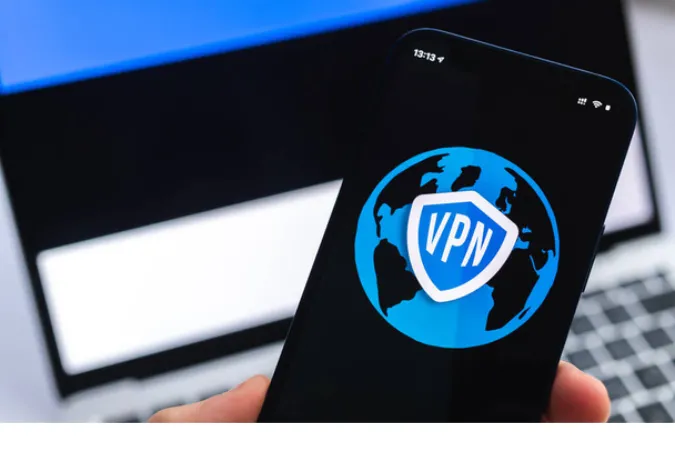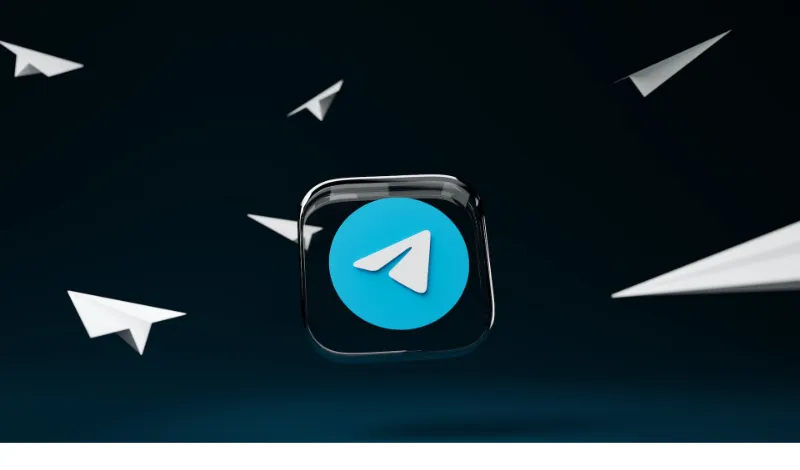A Virtual Private Network (VPN) is likely a staple in your digital life if you prioritize online security and privacy.
A VPN keeps your online activities secure and allows you to bypass geo-restrictions, offering a more open internet experience.
But what about the toll it might be taking on your phone’s battery life? You might have noticed that your battery seems to drain quicker when your VPN is active.
Well, you’re not alone in your observations. Many users have asked, “does using a VPN ruin your battery?”
In this post, we’ll take a comprehensive look at VPNs and their impact on your device’s battery life.
Quick Answer
Yes, using a VPN can cause your phone’s battery to drain faster. This is mainly due to two reasons:
- Data Encryption: A VPN encrypts your data to secure your online activities. This encryption process can be CPU-intensive and thus consume more battery power.
- Server Location and Connection Speed: Your connection’s stability and speed can depend on the VPN server’s location. A far-off server or unstable connection can cause the VPN to work harder, further increasing energy usage.
However, the increased power consumption doesn’t mean it’s “ruining” your battery.
It just means your battery might deplete faster when the VPN is running, which is a trade-off for the enhanced security and privacy benefits you gain.
Understanding VPNs
A Virtual Private Network (VPN) is a powerful tool used to secure your internet connection, protect your privacy, and bypass geo-restrictions.
But how does it work, and why can it cause your battery to drain faster? Let’s unpack this.
What is a VPN?
A VPN is like a secure tunnel for your internet traffic. It encrypts your data and routes it through a server in a location of your choice.
This process hides your actual IP address, making your online activities more anonymous and secure.
How Does a VPN Work?
A VPN works in two main steps:
- Data Encryption: When you activate your VPN encrypts your internet data. This encryption means that even if someone manages to intercept your data, they won’t be able to understand it because it’s all coded information.
- Data Routing: After encryption, the VPN routes your data through one of its servers, thereby masking your original IP address. This step allows you to bypass geo-restrictions and browse the web as if in a different location.
Does Using a VPN Drain Your Battery Faster?
The short answer to this question is, yes, using a VPN can drain your battery faster. But this doesn’t mean that a VPN is harmful to your phone.
The reason behind this increased battery drain is rooted in the very function and operation of a VPN.
The Connection Between VPNs and Battery Life
VPNs are designed to provide an extra layer of security for your online activities. When you switch on your VPN, it starts encrypting your data, which requires processing power.
The continuous background activity and data transmission can indeed lead to more battery usage.
It’s the same principle as how using data-intensive apps or keeping your screen on for extended periods can drain your battery faster.
A VPN operates in the background when connected, so it continuously uses energy, contributing to battery drain.
So, should you keep your VPN on or off on your phone? Well, that largely depends on your need for privacy and how much battery life you’re willing to sacrifice for it.
If battery life is a concern, turning off the VPN when unnecessary can save power.
Why Does a VPN Potentially Increase Battery Usage?
So, we’ve established that using a VPN can affect your device’s battery life, but why exactly does this happen? Here’s a closer look at the two primary reasons:
Data Encryption
When you use a VPN, all of your internet traffic is encrypted. This encryption ensures that your data is secure, even if a third party intercepts it.
However, the encryption process itself can be quite CPU-intensive, requiring a significant amount of processing power. More processing power means more energy used, which can contribute to faster battery drain.
Server Distance and Connection Stability
The other factor affecting your battery life when using a VPN is the distance between your device and the VPN server you’re connected to.
The further the server is from your location, the harder your device has to work to maintain a stable connection, leading to increased battery usage.
Also, if your VPN connection is unstable, your device might spend extra energy trying to reconnect, which can further drain your battery constantly.
So, can you leave a VPN on all the time? Technically, yes, but you might want to reconsider if battery life is a concern. However, remember that leaving it on gives you constant security and privacy.
How to Prevent Battery Draining When Using VPN
Let’s look at optimizing VPN use and reducing its impact on your battery life.
Method 1. Limit VPN Usage
The first and most straightforward method to save battery life while using a VPN is to limit your VPN usage. This doesn’t mean you have to stop using a VPN entirely but be mindful of when you’re using it.
Here’s how you can limit your VPN usage:
- Turn off VPN when not in use: When you’re not using your device or not accessing the internet, turn off your VPN. This reduces unnecessary battery drain caused by the VPN running in the background.
- Use VPN only when needed: While it’s tempting to always leave your VPN on for maximum privacy, this isn’t always necessary. For example, if you’re browsing non-sensitive websites or using apps that don’t require additional security, you could consider turning off your VPN.
Method 2. Choose a VPN with a Battery Saver Feature
Not all VPNs are created equal. Some VPNs have been specifically designed to be more energy-efficient and have features that can help you save battery life.
If battery drain is a significant concern, consider choosing a VPN with a battery saver feature.
VPNs with a battery saver feature are programmed to minimize their battery usage.
They optimize their protocols, reduce background activity, and lower the VPN’s data usage when your device is in standby mode.
Method 3. Keep Your Device and VPN App Updated
Believe it or not, keeping your device and VPN app updated can significantly improve battery life. Here’s how:
Device Updates
Manufacturers continuously release updates to improve device performance, including battery optimization. So, if you’re not updating your device regularly, you might miss out on these improvements.
Updating your device ensures you use the latest battery-saving features and improvements.
VPN App Updates
VPN providers also regularly update their apps to fix bugs, improve performance, and, yes, optimize battery usage.
These updates can make the VPN app more efficient, using less power and preserving battery life.
Frequently Asked Questions (FAQ)
In this section, we’ll tackle common questions people have about VPNs and their impact on device battery life.
Does a VPN ruin your battery?
No, a VPN does not “ruin” your battery. However, due to its continuous operation and the processes it performs (like data encryption), it can use more battery power, leading to quicker battery drain.
Does VPN harm your phone?
No, a VPN does not harm your phone. It simply provides an additional layer of security by encrypting your data. While this process can use up more battery, it doesn’t physically harm your device.
Can you leave a VPN on all the time?
You certainly can, especially if you want the utmost privacy and security. However, as we’ve discussed, leaving your VPN on continuously can lead to faster battery drain.
Therefore, turning it off is a good idea when it’s unnecessary.
Conclusion
So, there you have it! Yes, using a VPN can indeed impact your battery life, but it’s not as dire as it might seem at first glance.
This impact is due to the energy-intensive processes of maintaining a secure, encrypted connection to a VPN server.
However, you’re not entirely helpless. You can effectively manage your VPN usage to minimize its effect on your battery life.
These methods include limiting your VPN usage, choosing a VPN with a battery-saving feature, and keeping both your device and VPN app updated.
Remember, while battery life is important, it should not compromise your online security and privacy.
A VPN is a crucial tool in maintaining your online privacy, and the benefits often outweigh the slight increase in battery usage.









